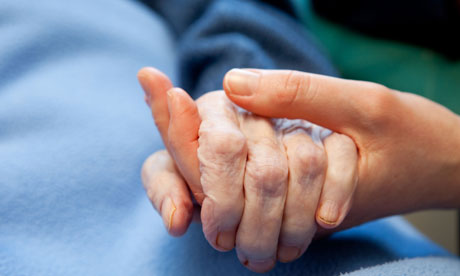As living beings, we deal with death.
The one thing you are always guaranteed the moment you are born, or even the moment you are conceived, is that you will die. (depending on where you go, you can even avoid the paying taxes bit of "death and taxes").
As part of my Family Medicine clerkship (which is a subset of the 3 month medicine block) we have a hospice experience. I have an issue that the general public (and a good part of healthcare) associates hospice with death. As in hospice = you are going to die. Or hospice is where you go to die. I hate that. That's not all that hospice is. A very important aspect of what hospice provides is end of life care. But that's like saying the purpose of a car is to have air conditioning. The true spirit of hospice revolves around palliation. But I'm not sure I even agree with the all-knowing wikipedia definition of hospice.
But, as always, I digress.
As part of our hospice experience, we have to write a short paper on either:
- What was the most meaningful part of the experience?
- What surprised you
the most during this visit?
My paper addressed the second question. I'm sharing that paper with you below. As always, I've scrubbed out all identifying patient information. And, as always, these are my opinions. No one else's. It is not meant to reflect or imply any parties share the same feelings etc. This is also not a completely accurate description of what happens in hospice - this is just a slice.
So with all that couching out of the way:
------------------------------------------
During my hospice half day, I got the opportunity to watch
and help two families through the loss / inevitable loss of their loved ones. In
the first situation, the patient had quickly slipped into a bad state of health
secondary to late stage esophageal cancer. He had only a few months with his
wife after his diagnosis. He quickly slipped into a state where he
couldn’t make his own decisions. His wife was very distraught at having to make
the decisions – having to read his mind, to guess what he would’ve wanted.
The second family I worked with had a different dynamic. An older patient went through multiple treatments for breast cancer, but the cancer recurred. It started to invade her heart. As of the time I saw her, she was still in relatively good
health. She had a large family – she had 7 children (who all had children of their own). The kids were all in the room when we started discussing hospice.
Her kids were leaning towards doing
everything to prolong their mother’s life whereas the mother (the patient)
simply said “no, that’s not living. I don’t want that. If it’s my time, it’s my
time.” What surprised me about the whole encounter is how a family wants to
deal with the end of their loved one’s life vs. how the loved one (the patient)
wants to go through it. It seems like when we see the pain the
patient is going through, we want to help. The first instinct for an outsider (and this seems to include family as well as health care professionals) is to act – to do something to extend their life.
Whereas for the person actually going through the pain – for someone who has
actually had to face their mortality, their perspective seems different. I am sure
that many patients who are going through the stages of grief have a
hard time accepting that they may pass soon and want everything done in a bid
for gaining as much time as possible. I am not here to make any character judgments. I do have my own personal thoughts on the matter, but that is not the focus of this paper.
I guess what surprised me was how calmly some people approach the end of their life. This second patient was very sad about
everything that was happening. She wasn't cheery about the idea of dying. About leaving her loved ones behind. But even though she teared and cried, she was
still calm and direct about her wishes. It was also interesting to see the
interaction in the family. There was no question she was the matriarch – what she says goes. No arguments. No back talking.
Encounters like this reinforce my strong feeling that patients with grave diseases need to have these difficult conversations earlier rather than later. If the
inevitable does happen, leaving the loved ones / family members to deal with
making final decisions is a horribly difficult burden. Death is difficult for everyone. Planning for end of life care ahead of time - whatever those plans may be - lets people focus on what matters most near the end.
---------------------------
I don't mean to be fatalistic, but the end comes for us all. Thinking about it (in a healthy, productive way) doesn't make it come any sooner or delay it any longer.
Going through documents like "5 wishes" helps people have these difficult conversations. Even more - it helps to quickly draw up paper work for what you want health care workers to do for you. So that your wishes are respected and carried out.
Ok, now my lunch break is over. Back to seeing patients!

